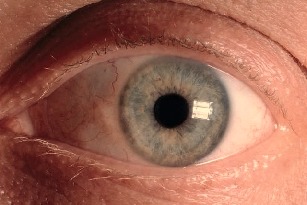Life Stealers...how to stop them
No Conscience -
No limit to the Lies.....
.......until we set them.
Characteristics of Psychopathy
KEY FEATURES OF PSYCHOPATHY - Robert Hare
Glib and Superficial
Psychopaths are often voluble and verbally facile. They can be amusing and entertaining conversationalists, ready with a clever comeback, and are able to tell unlikely but convincing stories that cast themselves in a good light.
Egocentric and Grandiose
Psychopaths have a narcissistic and grossly inflated view of their own self-worth and importance, a truly astounding egocentricity and sense of entitlement, and see themselves as the centre of the universe, justified in living according to their own rules.
Lack of Remorse or Guilt
Psychopaths show a stunning lack of concern for the effects their actions have on others, no matter how devastating these might be. They may appear completely forthright about the matter, calmly stating that they have no sense of guilt, are not sorry for the ensuing pain, and that there is no reason now to be concerned.
Lack of Empathy
Many of the characteristics displayed by psychopaths are closely associated with a profound lack of empathy and inability to construct a mental and emotional "facsimile" of another person. They seem completely unable to "get into the skin" of others, except in a purely intellectual sense.
Shallow Emotions
Psychopaths seem to suffer a kind of emotional poverty that limits the range and depth of their feelings. At times they appear to be cold and unemotional while nevertheless being prone to dramatic, shallow, and short-lived displays of feeling. Careful observers are left with the impression they are playacting and little is going on below the surface.
Poor Behavior Controls
Besides being impulsive, psychopaths are highly reactive to perceived insults or slights. Most of us have powerful inhibitory controls over our behaviour; even if we would like to respond aggressively we are usually able to "keep the lid on." In psychopaths, these inhibitory controls are weak, and the slightest provocation is sufficient to overcome them. But, their actions have a “cold” and focused quality about them, and return to “normal” is quick.
A Need for Excitement
Psychopaths have an ongoing and excessive need for excitement—they long to live in the fast lane or "on the edge," where the action is. In many cases the action involves the breaking of rules.
Lack of Responsibility
Obligations and commitments mean nothing to psychopaths. Their good intentions—"I'll never cheat on you again"—are promises written on the wind. Their performance on the job is erratic, with frequent absences, misuse of company resources, violations of company policy, and general untrustworthiness. They do not honour formal or implied commitments to people, organizations, or principles.
Early Behaviour Problems
Most psychopaths begin to exhibit serious behavioural problems at an early age. These might include persistent lying, cheating, theft, arson, truancy, substance abuse, vandalism, and/or precocious sexuality. Because many children exhibit some of these behaviours at one time or another, it is important to emphasize that the psychopath's history of such behaviours is more extensive and serious than most.
Adult Antisocial Behaviour
Psychopaths see the rules and expectations of society as inconvenient and unreasonable impediments to their own behavioural expression. They make their own rules. Antisocial behaviour may consist of phoney stock promotions, questionable business practices, partner or child abuse, and so forth. Others do things that are not necessarily illegal but are nevertheless unethical, immoral, or harmful to others: cheating on a partner, emotional abuse, bullying, to name but a few.


